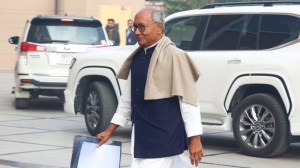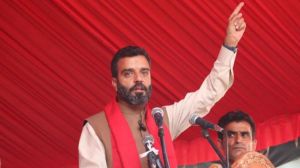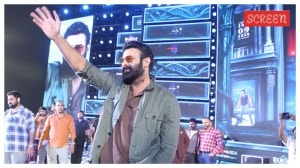Deoband declaration
The recent declaration by Darul Uloom, Deoband, one of the most influential Islamic theological schools in South Asia...

The recent declaration by Darul Uloom, Deoband, one of the most influential Islamic theological schools in South Asia, is most welcome and timely. Deoband has defined terrorism as any action that hurts innocent individuals. Its rector Maulana Marghoobur Rahman has said, 8220;killing of innocents is not compatible with Islam. It is anti-Islamic8221;.
The Deoband declaration is an implicit recognition of the principle that the supposed laudability of the end cannot justify recourse to terrorist acts. The bottom line is that the end cannot justify the means. This is in keeping with UN resolutions that terrorist acts 8220;are in any circumstances unjustifiable, whatever considerations of a political, philosophical, ideological, racial, ethnic, religious, or other nature, that may be invoked to justify them8221;.
The Deoband declaration will effectively counter the defamation of Islam and its portrayal as a religion that endorses violence against non-believers. The Sub-Commission on Human Rights, which I had the privilege of chairing in August 2004, unanimously passed a resolution condemning defamation of Islam and other religions.
It is reported that certain Muslim clerics have recommended that the 8216;root cause8217; of terrorism be explored. Fine. But that should not be a pretext for indulgence in terrorist acts. The Deoband declaration is a milestone and will be very conducive in bringing about harmonious relations between different religions and sects. Its spirit should also motivate other religious bodies and organisations to eschew campaigns of hatred and persecution of other communities. We have a golden opportunity and it is imperative that all of us make the most of it.
Unsung hero
Amidst daily depressing reports of murder, rape and violence, one8217;s faith in humanity is redeemed when one comes across an extraordinary human being like Dr Anthony deSouza who passed away last month at the age of 94. Tony deSouza led a remarkable life. For four years he served with the First Rajput Regiment of the British Indian army in North Africa. He took part in the battle of El Alamein and fought under Field Marshal Montgomery in Sicily. Thereafter he was in Burma fighting the Japanese. His escape from the Japanese was miraculous. Tunnels were dug under the hills where soldiers were being evacuated, many of whom were shot by snipers. The doctors on duty were the last to leave. The doctor before him was shot, but Tony managed to escape unscathed.
In 1945 he worked as a doctor in Juhu, most of which at that time was marshland. There was no electricity, no running water, but quite a few cobras and jackals. Those who are now alive remember him as a young doctor making house calls at night on a bicycle, with two volunteers lighting the way with kerosene lamps hoping to ward off the jackals. Tony had his share of the good life. On weekends he would be dancing at the Catholic Gym on Marine Lines or at the erstwhile Bristol Grill in Juhu. There was one occasion when he did not measure up. He was asked to address his regiment in Hindi. He studied three books before his speech. When he asked an officer what he thought about his speech the frank reply was, 8220;It was very good, sir. But no one understood it8221;. Regrettably, that is also my predicament at times.
Persons like Tony are the unsung heroes who deserve to be honoured by the award of appropriate Padma or other public recognition. Failure to do so is a sad reflection on our sense of values.
Pakistan elections
A thousand ills may be laid at Musharraf8217;s door. But give the devil his due. He promised free and fair elections and honoured his pledge, which is established by the election results. It is for Pakistani political leaders to decide their course of action against Musharraf. The proposed impeachment will engender bitterness and kindle volatile passions. There was a strong case for impeachment of US President Richard Nixon. The succeeding President Gerald Ford dropped the move in the national interest and in the spirit of reconciliation. That example may well be considered in Pakistan.
- 01
- 02
- 03
- 04
- 05































